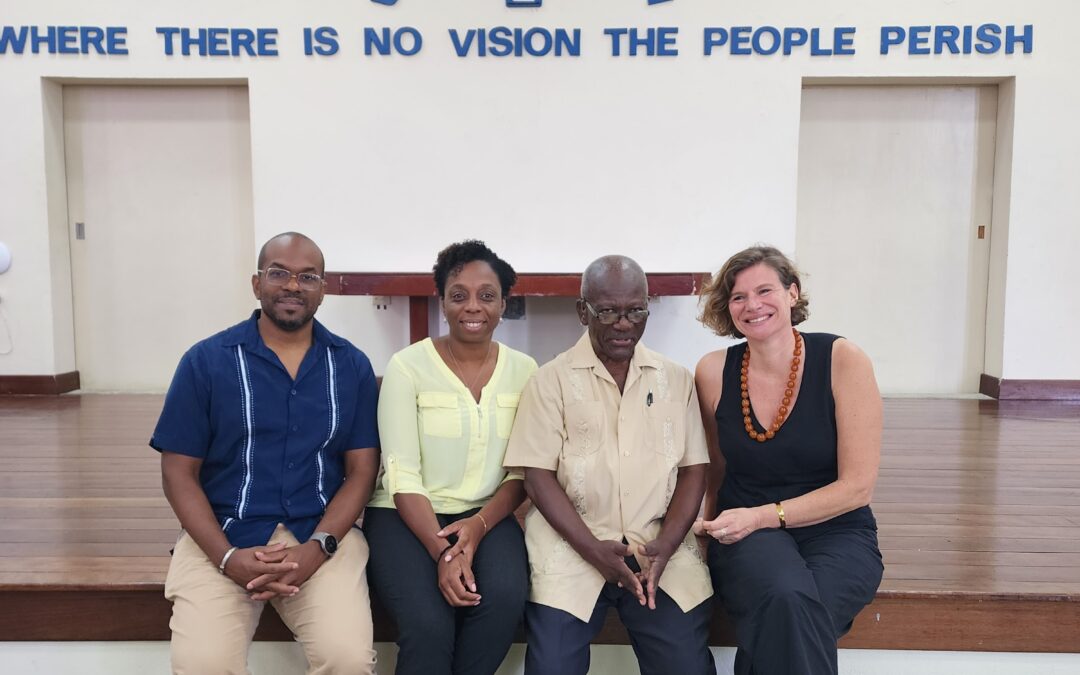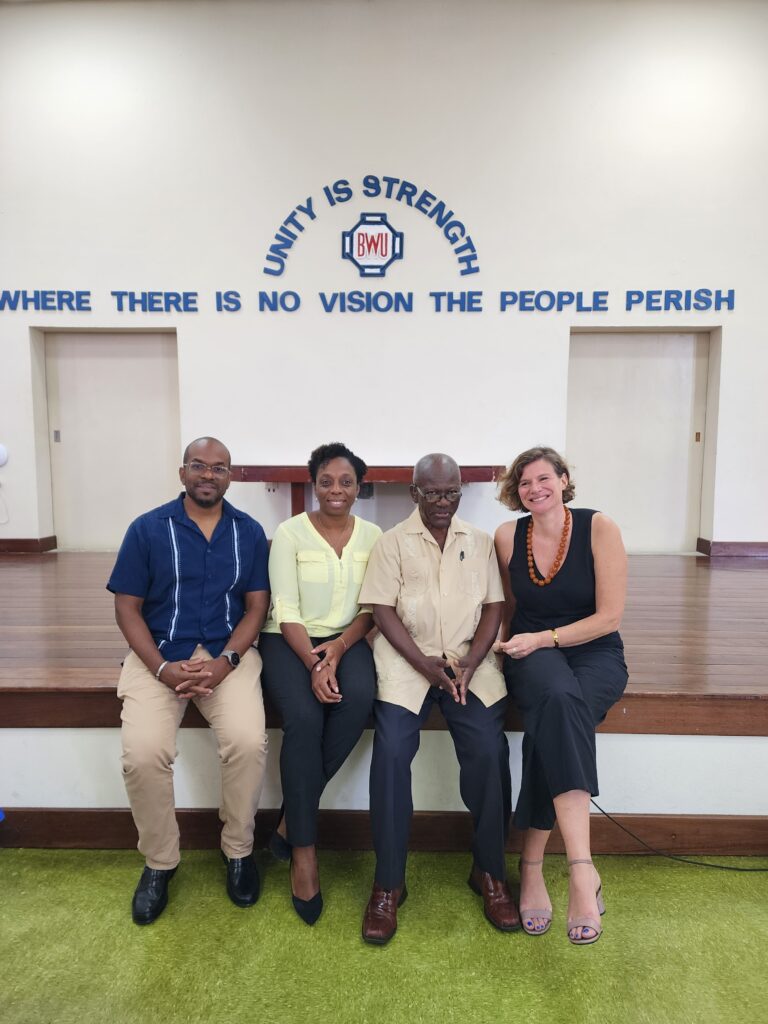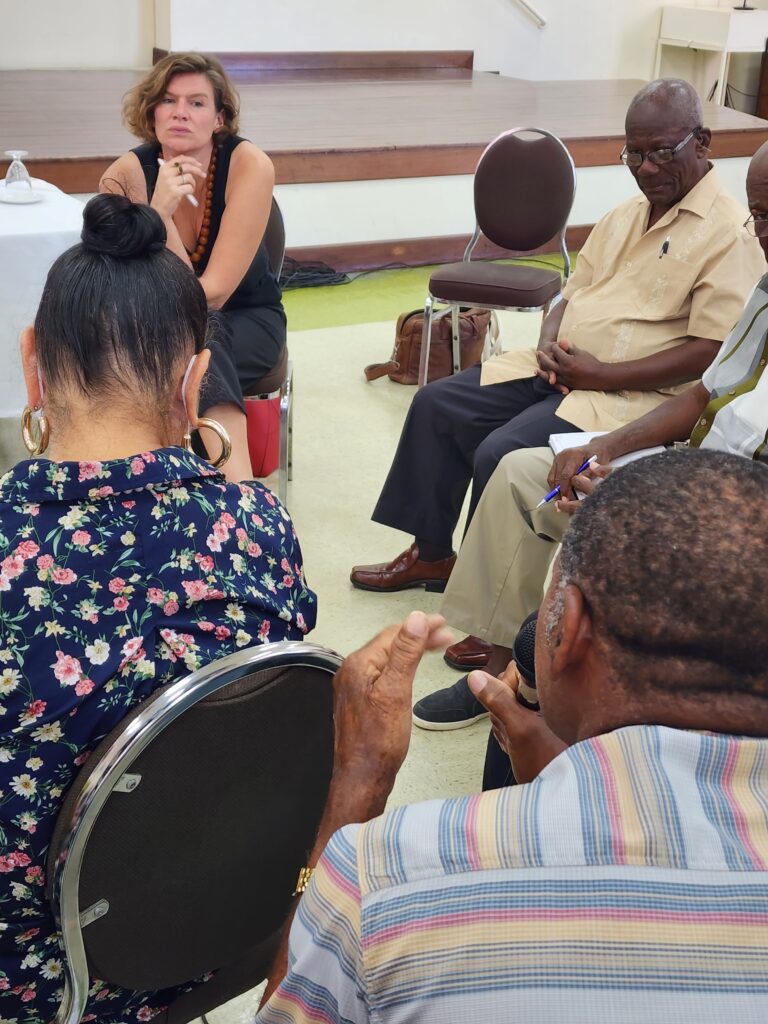Described as “one of the world’s most influential economists…on a mission to save capitalism from itself” Professor Mariana Mazzucato readily accepted an invitation from Barbados Workers’ Union General Secretary Toni Moore to chair a roundtable session with the BWU’s council. Mazzucato is a Professor in the Economics of Innovation and Public Value at University College London where she is the founding director of the UCL Institute for Innovation and Public Purpose.
After watching her presentation to the Barbados Social Partnership, General Secretary Moore was proactive in securing the expertise of Professor Mazzucato for the session on February 3rd at Solidarity House.
During the interactive two-hour discussion, which included BWU General Secretary Toni Moore, her advisor Sir Roy Trotman and BWU President General Shawn Knight, Professor Mazzucato outlined the most common reasons for industrial agreements failing, citing a lack of urgency and accountability as a recurring problem. She also stressed the need for partnerships to be multi-sectoral with a combined effort working towards a common goal. She said too often there is a “what’s in it for me” approach without a focus on everyone playing their part so all partners can benefit in the end.
The internationally renowned economist also highlighted the importance of looking at agreements at a deeper level and move past just making a profit. She indicated one way of valuing workers was by giving them a seat at the table via proper contracts.
Professor Mazzucato also highlighted that when employers are speaking about productivity, they neglect to factor in employee value which is a true pillar for real progress.
Several council members posed questions to Professor Mazzucato who engaged with them at length expressing regret that her time was limited.
The University College London (UCL) Institute for Innovation and Public Purpose (IIPP) is proposing a project led by Professor Mariana Mazzucato to support Prime Minister Mia Amor Mottley and her team in the Government of Barbados, organized around three components:
i. Strategic advice on mission-oriented industrial strategy;
ii. Cross-ministerial capacity building for policymakers and Public Officers; and
iii. Potential deeper policy design work focused on a specific tool or institution.
The first two components could be pursued in sequence or in parallel. The third component would build on the learnings and deliverables of the previous stages.
The Barbados Workers’ Union is committed to contributing to the development of these policies and looks forward to the continued talks and implementation.




Recent Comments